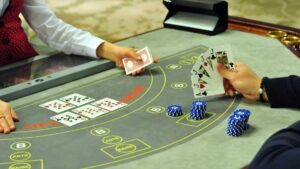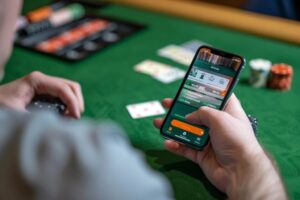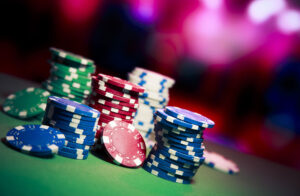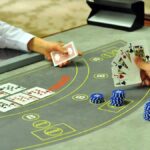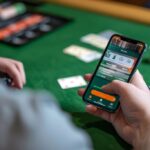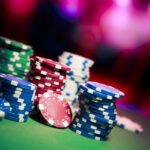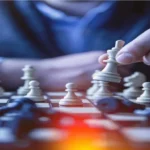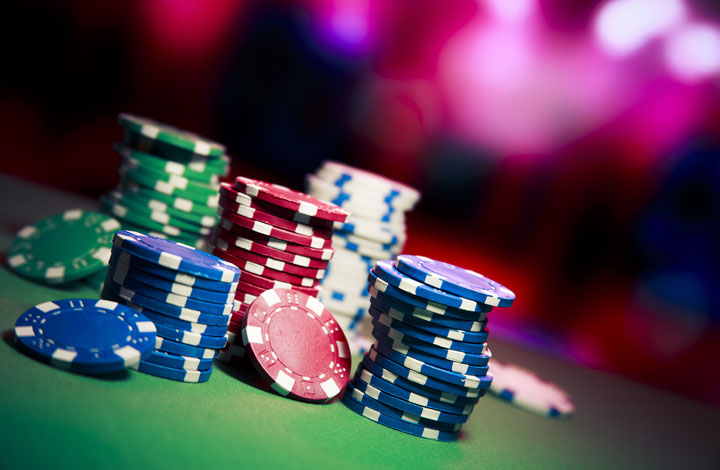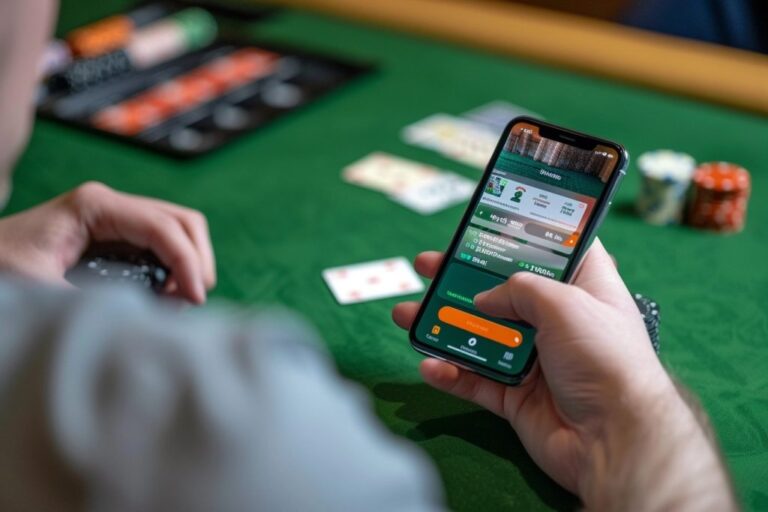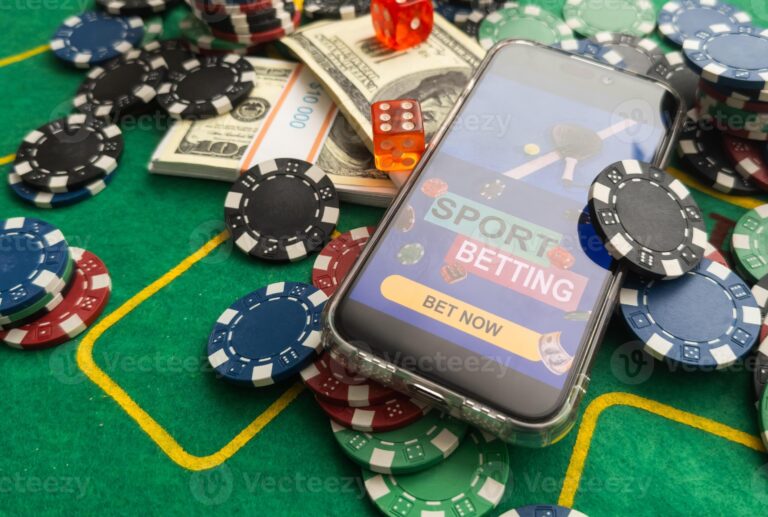Gambling has been part of human culture for thousands of years, from ancient dice games to modern online casinos and sports betting platforms. The question of why people gamble has intrigued psychologists, economists, and neuroscientists alike. While it might seem that gamblers are simply chasing money or luck, the deeper truth is far more complex. Gambling behavior is driven by a fascinating interplay of biology, psychology, and environment—an intricate dance between risk and reward that activates some of the most powerful mechanisms in the human brain.
To understand why gambling holds such universal appeal, we must explore how the brain processes reward, how risk-taking behaviors evolve, and why certain individuals are more susceptible to gambling addiction than others.
The Biological Basis of Gambling
At its core, gambling activates the brain’s reward system—the same neural pathways associated with pleasure, motivation, and reinforcement. When a person places a bet, their brain releases dopamine, a neurotransmitter that signals anticipation and excitement. This rush creates a temporary sense of euphoria, encouraging the behavior to be repeated.
Dopamine and the Reward Pathway
Dopamine plays a crucial role in reinforcing behaviors that feel good, such as eating, socializing, or achieving success. Gambling taps into this system by triggering dopamine release even before an outcome is known. The uncertainty itself becomes addictive because it mirrors how the brain evolved to respond to unpredictable rewards.
Neuroscientific studies show that near-misses—when a player almost wins—activate the same brain regions as actual wins. This explains why gamblers often feel compelled to continue after a close call. The brain doesn’t distinguish between almost winning and winning—it interprets both as signals to keep playing.
The Variable Reward Effect
Gambling operates on a variable ratio reinforcement schedule, where rewards are delivered unpredictably. This type of reward system is the most powerful form of behavioral conditioning known to science. Slot machines, for example, are designed to give occasional wins at random intervals. Because players never know when the next payout will occur, they remain engaged for longer periods. The brain becomes conditioned to expect a potential reward with every spin or bet, keeping players hooked on uncertainty itself.
The Psychology of Risk and Reward
Gambling is not merely a biological response—it’s also deeply psychological. Humans have a natural fascination with risk because it provides both challenge and stimulation. The thrill of uncertainty activates emotional and cognitive processes that make gambling compelling, even when logic dictates it’s unwise.
The Thrill of Risk
Risk-taking behavior is hardwired into human evolution. Our ancestors who took calculated risks—like hunting dangerous prey or exploring new territories—had better survival odds. Modern gambling taps into this evolutionary trait by providing safe, controlled environments where risk can be experienced without physical danger.
For many people, gambling becomes a form of sensation-seeking—a psychological trait characterized by the pursuit of excitement and novel experiences. The combination of risk, anticipation, and reward creates a rush that can mimic the high of extreme sports or other adrenaline-driven activities.
Cognitive Biases and Irrational Thinking
Gamblers often fall prey to cognitive distortions—mental shortcuts and false beliefs that distort reality. These biases make gambling feel more predictable and controllable than it truly is. Some of the most common include:
- The Gambler’s Fallacy: Believing that past outcomes affect future ones (e.g., assuming a win is “due” after a losing streak).
- Illusion of Control: Overestimating one’s ability to influence random events, such as blowing on dice or choosing lucky numbers.
- Confirmation Bias: Remembering wins more vividly than losses, reinforcing the belief that one is a skilled or lucky gambler.
- Availability Heuristic: Overvaluing dramatic wins (like jackpots) because they are memorable and often publicized.
These mental biases combine to create a powerful illusion: the feeling that one can outsmart or influence chance. This psychological trick keeps people gambling longer than they intended.
The Role of Personality and Individual Differences
Not everyone is equally drawn to gambling. Certain personality traits and emotional states make some individuals more susceptible to risk-taking behavior.
Sensation Seekers and Impulsivity
People with high levels of impulsivity or sensation-seeking tend to gamble more frequently. They are naturally drawn to activities that provide immediate rewards and excitement. For these individuals, gambling satisfies a psychological craving for novelty and stimulation.
Stress and Escapism
Many people turn to gambling as a form of escape from stress, anxiety, or boredom. The immersive nature of casinos and online gaming provides temporary distraction from life’s pressures. In such cases, gambling functions not as entertainment but as a coping mechanism, which can lead to problematic behavior over time.
Social and Cultural Influences
Cultural attitudes toward gambling also shape behavior. In some societies, gambling is seen as a harmless social activity, while in others it carries stigma. Social gambling—such as poker nights or betting pools—can reinforce community bonds. However, social acceptance can also normalize risk-taking and encourage frequent play.
Peer influence plays a significant role as well. Individuals who gamble within social circles where betting is common are more likely to adopt similar habits.
The Economics of Risk and Rationalization
From an economic standpoint, gambling behavior contradicts rational choice theory, which assumes that individuals make decisions to maximize long-term benefit. Yet gamblers often act irrationally, taking risks with negative expected outcomes.
Loss Aversion and Chasing Losses
Behavioral economists explain this through loss aversion—the tendency to feel the pain of loss more intensely than the pleasure of gain. When gamblers lose, they experience strong emotional discomfort, which drives them to continue betting in an attempt to “win back” what they lost. This cycle, known as chasing losses, can quickly spiral into financial trouble.
Overestimation of Probabilities
Another factor is the overestimation of rare events. People are more likely to gamble when the reward is large but improbable, such as winning a jackpot. The human brain struggles to grasp the true odds of low-probability events, leading to inflated optimism about winning big.
The Concept of “Sunk Cost”
Gamblers often fall victim to the sunk cost fallacy, the belief that previous investments justify continued participation. After losing money or time, players feel compelled to keep gambling to recover their investment, even though the odds remain unchanged.
The Social and Environmental Triggers of Gambling
Gambling is not only influenced by personal psychology but also by environmental and social factors. The design of gambling environments—both physical and digital—plays a significant role in reinforcing behavior.
The Casino Environment
Casinos are meticulously engineered to maximize engagement. The layout, lighting, music, and absence of clocks create a timeless environment where players lose track of time. Near-miss sounds, flashing lights, and intermittent rewards stimulate the brain’s pleasure centers. Even colors like red and gold are used strategically to evoke excitement and optimism.
Online Gambling and Accessibility
The rise of online gambling has amplified these effects. Digital platforms use data analytics to personalize experiences, sending targeted promotions, notifications, and rewards based on user behavior. The convenience of mobile gambling also eliminates natural stopping points, making it easier to engage in prolonged play.
Social Media Influence
Social media and influencer marketing have normalized gambling behaviors, especially among younger audiences. Exposure to betting content and viral gambling trends can glamorize the activity, framing it as both fun and financially rewarding.
The Fine Line Between Entertainment and Addiction
While many people gamble responsibly, a small but significant percentage develop gambling addiction—a condition recognized by the American Psychiatric Association as a behavioral disorder. Gambling addiction shares similarities with substance abuse disorders, including tolerance, withdrawal, and compulsive behavior despite negative consequences.
The Brain Under Addiction
In individuals with gambling addiction, the brain’s reward circuitry becomes desensitized. Over time, they need higher levels of stimulation to experience the same pleasure, leading to more frequent and riskier bets. This altered reward processing mirrors that of drug addiction, where dopamine dysregulation drives compulsive use.
Recognizing the Warning Signs
Signs of gambling addiction include:
- Inability to stop gambling despite losses
- Lying about gambling habits
- Borrowing or stealing money to fund bets
- Neglecting responsibilities due to gambling
- Emotional distress when unable to gamble
Early intervention and professional support are crucial for recovery. Cognitive behavioral therapy (CBT), support groups, and self-exclusion programs are effective tools for regaining control.
The Future of Gambling Behavior Research
As gambling technology evolves, researchers continue to explore new dimensions of human behavior related to risk and reward. Artificial intelligence and neuroscience are being used to study decision-making patterns, brain responses, and addiction pathways. The goal is to develop ethical frameworks and responsible gaming tools that balance innovation with player protection.
Emerging fields like neuroeconomics are shedding light on how people make risky financial decisions, not just in casinos but in broader contexts such as stock trading and cryptocurrency investments. Understanding gambling psychology helps society address similar behaviors across different industries.
Frequently Asked Questions
Q: Is gambling purely based on luck or skill?
A: It depends on the game. Games like poker and blackjack involve elements of skill, while others like slots or roulette rely entirely on chance. However, in all cases, the house maintains a mathematical advantage.
Q: Why do people keep gambling after losing?
A: Emotional factors like loss aversion and the illusion of control drive gamblers to chase losses. The brain’s reward system reinforces the behavior through dopamine release, even during losing streaks.
Q: Are some people more prone to gambling addiction?
A: Yes. Genetic predispositions, personality traits like impulsivity, and environmental exposure can increase vulnerability to gambling addiction.
Q: Can the excitement of gambling be replaced by healthier activities?
A: Absolutely. Activities like sports, creative hobbies, and social engagement can provide similar dopamine rewards without financial risk.
Q: How does technology affect gambling behavior?
A: Online gambling platforms use algorithms and personalized features that increase engagement, making it easier for individuals to play frequently and impulsively.
Q: What’s the difference between responsible gambling and addiction?
A: Responsible gamblers set limits and view gambling as entertainment. Addicted gamblers lose control, prioritize gambling over other responsibilities, and continue despite harm.


